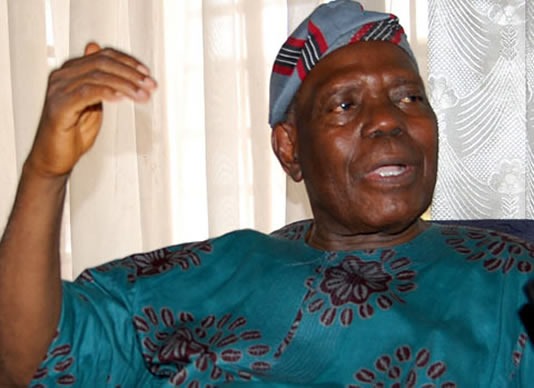Akande Slams Nigerian Universities for Producing Worthless Graduates
 Chief Adebisi Akande, the former Governor of Osun State and a powerful figure within the All Progressives Congress, has delivered a scathing critique of Nigeria’s traditional education system. He called for a radical shift away from outdated methods of learning, warning that the country’s educational institutions risk being left behind in an increasingly competitive global landscape.
Chief Adebisi Akande, the former Governor of Osun State and a powerful figure within the All Progressives Congress, has delivered a scathing critique of Nigeria’s traditional education system. He called for a radical shift away from outdated methods of learning, warning that the country’s educational institutions risk being left behind in an increasingly competitive global landscape.
In a forceful statement issued from his residence in Ila-Orangun, Osun State, Akande urged universities to stop churning out graduates who fail to contribute to the national economy. “Universities must not produce graduates who are of no value to the economy,” he declared. Akande made these remarks during a visit by the Vice Chancellor of Ekiti State University (EKSU), Prof. Babatola Ayodele, and other senior officials from the institution.
Akande’s comments highlighted a critical concern for Nigeria’s future: the education system must evolve or risk irrelevance on the world stage. “If you want to compete globally, you cannot afford to be complacent. Graduates need to possess relevant skills, not just degrees,” he insisted. The former governor went further, stating that awarding degrees without the necessary competencies to fuel national development should be completely discouraged within the Nigerian educational curriculum.
“Education is not just about going to school; it’s the beginning of learning how to work and contribute meaningfully,” Akande said, stressing the need for a more practical and skill-based approach to education.
Akande, a proud alumnus of EKSU, praised the university for its recent success in being ranked as the best state university in Nigeria by Times Higher Education. He credited the institution’s progress to what he described as “knowledgeable leadership,” underscoring the importance of forward-thinking strategies in academic management.
Meanwhile, the Vice Chancellor of EKSU, Prof. Ayodele, expressed deep appreciation for Akande’s ongoing mentorship. Ayodele acknowledged the invaluable fatherly guidance provided by the former governor, which is seen as vital for the continued advancement of the university. He also emphasized EKSU’s commitment to providing a well-rounded education that equips students with essential skills. “We ensure that no student graduates without gaining relevant vocational skills to secure profitable employment,” Ayodele proudly declared, rejecting the outdated notion that a university degree should solely lead to a white-collar job.
Despite these efforts, Akande’s call for a bold transformation in Nigerian education has set the stage for a fierce debate on how best to reform the country’s academic institutions for future competitiveness.













